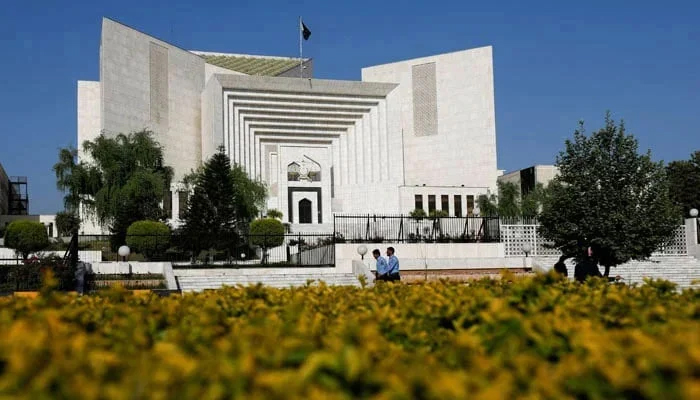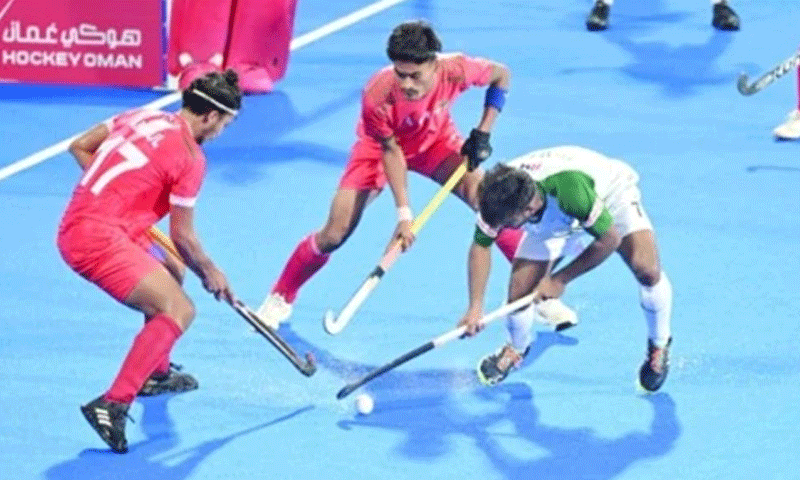Supreme Court Grants Military Courts Permission to Announce Verdicts in Pending Cases

Islamabad:The Constitutional Bench of the Supreme Court of Pakistan has granted military courts permission to deliver verdicts in cases involving 85 suspects, despite ongoing challenges to the constitutionality of the military court proceedings. The decision came during the hearing of intra-court appeals against the decisions made by the military courts, where the Ministry of Defence’s lawyer, Khawaja Haris, presented his arguments.
The hearing, led by Justice Ameen-ud-Din, saw the bench discussing various legal questions surrounding the Army Act and its applicability to civilian cases. Justice Jamal Mandokhel, at the beginning of the hearing, asked the counsel to provide arguments on whether the annulled provisions of the Army Act were consistent with the Constitution. He also raised the issue of whether amendments could be made to the Army Act to include more individuals under its jurisdiction, considering that the Army Act of 1973 predates the current Constitution.
Justice Muhammad Ali Mazhar inquired about the reasons behind the annulment of certain provisions by the courts, to which Khawaja Haris responded that there were “flaws” in the Supreme Court’s decision. Further, Justice Mazhar pointed out that details regarding the May 9 incidents, which were a focal point of the case, were still missing. The Additional Attorney General responded that the requested details had been received and would be submitted as a separate application.
Justice Musarat Hilali raised concerns regarding the trials conducted under the annulled provisions, questioning what would happen to the cases and sentences that were already decided under those provisions before they were struck down. Khawaja Haris clarified that typically, judgments rendered under provisions that were later annulled are protected, but Justice Hilali expressed that ignoring the rights of those convicted under these provisions would amount to discrimination.
Justice Jamal Mandokhel emphasized the voluntary nature of joining the armed forces and the knowledge that the Army Act would apply, which limits certain fundamental rights. He added that the Army Act is specifically designed to regulate military discipline, and its application ensures the maintenance of order within the forces. In response, Khawaja Haris argued that no one joins the army with the intention of committing a crime, and fundamental rights are only suspended after committing a crime.
During the hearing, Justice Mandokhel also asked whether the Supreme Court, in its appellate capacity, would be confined to reviewing the petitioner’s request or if it could examine other aspects of the case. Justice Ameen-ud-Din clarified that while the parties are restricted to their submissions, the court is not limited in its review.
At the conclusion of the hearing, the Constitutional Bench issued an order allowing military courts to proceed with sentencing the 85 accused individuals. The verdicts, however, will be subject to the final decision of the Supreme Court in the ongoing case. The court also instructed that those who may receive relief in their sentences should be released, while those who cannot be granted relief should be transferred to jail for the execution of their sentences.
The bench postponed the hearing of the military court cases until after the winter holidays, allowing time for further deliberations and submissions.






